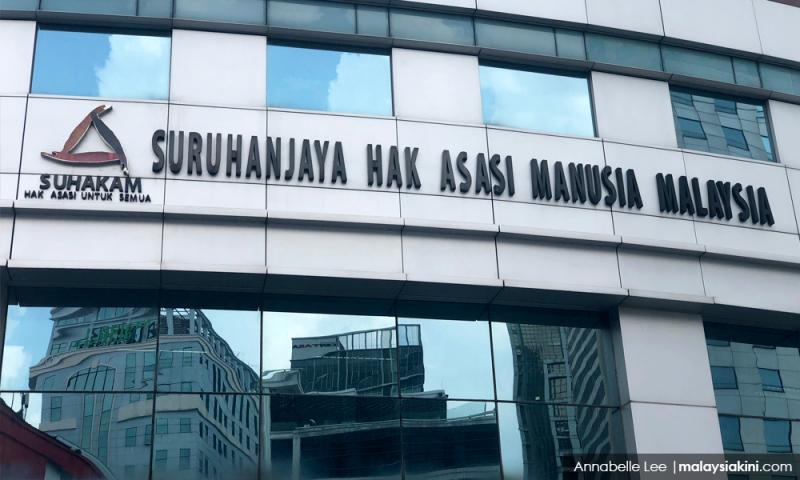MP SPEAKS | M'sia needs a gutsy, independent Suhakam
MP SPEAKS | It has been nine days since the controversial announcement of the new line-up of commissioners in the National Human Rights Commission (Suhakam), and it has been the subject of evaluation and assessment by many.
Malaysia, as a member of the United Nations Human Rights Council (2022-2024) needs a national human rights commission that functions as a cornerstone and is dedicated to upholding and championing human rights domestically, using the principles of the Universal Declaration of Human Rights (UDHR), without prejudice, fear or favour as its moral compass.
Apart from some of the commissioners holding positions in political parties, which I am certain to have their own dogmas that members must adhere to, the statement by the new Suhakam chairperson Rahmat Mohamad a few days after his appointment that he will ensure human rights in Malaysia will be according to a local “mould” or ‘acuan tempatan’, free from “political pressure”, comes as a shock.
He seems to have totally lost the plot on the universality of human rights and not merely his understanding of it. A disastrous statement indeed, coming from the chief of a powerful and influential commission that was formed not as an NGO or a coalition but through an Act of Parliament that acts as the voice for all, including for the minorities and marginalised groups, as well as for the vulnerable and weak.
Rahmat stands corrected as the principles of human rights must be defended and upheld for all without bias and discrimination in accordance with the UDHR, not just the rights of some.
There is also the obligation and responsibility that international human rights tenets are localised to ensure there is no discrimination, inequality, injustice, and unfairness against any person or group of people.

This year, I reminded Prime Minister Ismail Sabri that Malaysia’s membership in the UN Human Rights Council comes with obligations that Malaysia must resolve, no matter how contentious, matters back home that infringe upon the fundamental rights of Malaysians and every single person on Malaysian soil.
These obligations include:
1. To reform the criminal justice system and abolish the death penalty, beginning with the mandatory death penalty. The government has made progress by announcing it will abolish the mandatory death penalty, hopefully by this year.
2. To table amendments to the Law Reform (Marriage and Divorces) 1974 and Syariah provisions to set 18 as the minimum age of marriage for Peninsular Malaysia as well as in Sabah and Sarawak with no exceptions.
The minister in Prime Minister’s Department in his Parliament reply this year made clear that the government would maintain the status quo, allowing children below the age of 18 to marry.
3. To withdraw the appeal against the High Court decision that allows for automatic citizenship of children born overseas to Malaysian mothers, as allowed for Malaysian fathers, and to amend the Federal Constitution in line with this.
The government has yet to address the necessary constitutional amendment to cement, once and for all, that both father and mother can automatically pass on citizenship to their children born overseas. Malaysia also remains among 25 countries that have nationality laws that deny women equal rights in conferring citizenship to their children.
4. To table the Independent Police Complaints and Misconduct Commission (IPCMC) bill in the coming Parliament sitting and to ensure it is passed, to adopt Suhakam’s new interpretation of custodial deaths, as well as to ensure the welfare of the police force is taken care of.
The government lacks the political will and courage to form an independent commission that can nip custodial deaths in the bud and has instead planned to introduce a watered-down version in the form of the Independent Police Conduct Commission (IPCC) which has less power and authority than the Enforcement Integrity Agency Commission (EAIC).
5. To sign and ratify international treaties such as the Rome Statute, the Second Protocol to the International Covenant on Civil and Political Rights, the UN Convention Against Torture, the 1951 Refugee Convention and conventions that eliminate discrimination and intolerance based on religion and belief and to immediately set up a Royal Commission on Enforced Disappearances.
While Malaysia is a signatory to three human rights conventions – The Convention on the Elimination of All Forms of Discrimination Against Women, the Convention on the Rights of the Child (CRC) and the Convention on the Rights of Persons with Disabilities, there are six other human rights conventions that have not been signed and ratified, including existing reservations in the CRC.
Much work to be done
Suhakam’s chairperson and new commissioners bear the responsibility and obligation to be torch bearers for human rights for all in Malaysia.
The new Suhakam ensemble must work hard to ensure that they:
1. Maintain its “Grade A” status so it won’t be viewed as a global embarrassment. “Grade A” allows Malaysia to join international peer reviews on human rights, especially the Universal Periodic Review (UPR). A downgrade to “Grade B” will mean losing that privilege and the country is unlikely to sit in the UNHRC.
2. Lobby the government to table Suhakam’s 2021 human rights report in Parliament so it can be debated and contemplated to formulate practical and robust action plans according to recommendations by the UN Human Rights Council.
The new chairperson should also state his stand on the Rome Statute, an accession to the International Criminal Court (ICC) to prosecute war criminals and dictators responsible for crimes against humanity, and the International Convention on the Elimination of All Forms of Racial Discrimination (Icerd) which he opposed a few years ago.
3. Regular consultations, interactions and meetings with MPs and Parliamentary Special Select Committees, including the Malaysian Bar Council as partners in implementing the human rights agenda.
4. Lobby for additional funds for Suhakam, which must be stated in the national budget and should come from Parliament instead of from the executive, in this case, the Prime Minister’s Department, to ensure integrity, independence, and autonomy.
5. Suhakam must be the moral compass, conscience, and conviction of the nation to pressure the government for policy and legal reforms that are pro-human rights, and work towards the ratification of the six other UN human rights conventions.
While I still have reserved but high hopes for the new Suhakam commissioners, and an existing one who had done human rights work in the past, the rest remain unproven as advocates.
There is much to do for human rights in Malaysia and Suhakam must ensure that it is upheld, protected, promoted, and defended without fear, favour, or prejudice.
KASTHURI PATTO is Batu Kawan MP.
The views expressed here are those of the author/contributor and do not necessarily represent the views of Malaysiakini.
RM12.50 / month
- Unlimited access to award-winning journalism
- Comment and share your opinions on all our articles
- Gift interesting stories to your friends
- Tax deductable
